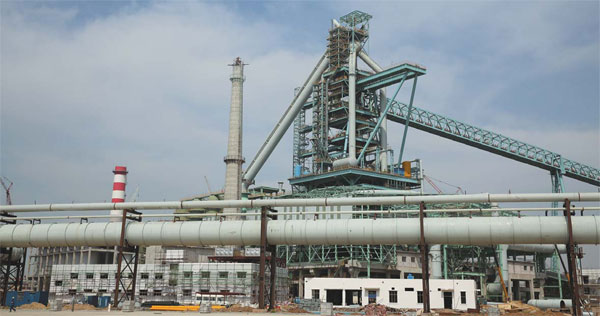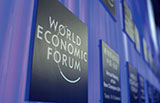Baosteel prioritizes environment in designs
By Li wenfang (China Daily) Updated: 2015-07-14 08:05
|
Baosteel Group, the largest steelmaker in China, vows to make breakthroughs in energy saving and environmental protection at its new complex in Zhanjiang, Guangdong province. [Photo/China Daily] |
Complex plans include both world and country firsts
Baosteel Group, the largest steelmaker in China, plans to make breakthroughs in energy saving and environmental protection at its new complex in Zhanjiang, Guangdong province, which is scheduled to go into operation in September.
One system will remove both sulfur dioxide and nitrogen oxides from coke oven gas to meet the national emissions standards issued last year, said Gao Yuan, director of the energy and environmental protection department of Baosteel Zhanjiang Steel.
A world first, the system was developed by a domestic institute and had its pilot testing in November.
In addition, in the sintering process, facilities using activated carbon, the first of their kind in China, remove heavy metals, dioxin, sulfur dioxide and nitrogen oxides in the gas, Gao said.
The coke oven and sintering process consume up to 60 percent of the energy used at the complex, which is located on Donghai Island in Zhanjiang and designed to produce 8.75 million metric tons of steel annually.
Energy equivalent to 609 kilograms of coal is needed at the site to produce each ton of steel, more than 95 percent of which is supplied by coal.
"We are employing all the energy-saving technologies available to reach an internationally outstanding level. The key lies in energy management to make full use of the facilities and strengthen the energy-saving awareness of all our employees," Gao said.
Other energy-saving efforts include solar power for residential areas of the complex, thermal power at a stadium and the recycling of gas from blast furnaces, coke ovens and converters.
The investment for energy-saving and environmental protection facilities at the mill in Zhanjiang totals 6.22 billion yuan ($1 billion) and accounts for more than 12 percent of the total investment for the complex, with 116 items of related technologies employed.
An extra 300 million yuan has been earmarked to comply with the air pollution control action plan of Guangdong for the period between 2014 and 2017, which was issued last year and requires the complex to meet the strictest standards in the country.
The operating costs for environmental purposes are estimated to be 100 yuan per ton of steel produced.
"Production capacity does not make the future of China's iron and steel industry, but product categories and structure, and environmental friendliness," said Zhou Shichun, deputy general manager of Baosteel Zhanjiang.
- 2015 China International Fair for Investment and Trade kicks off in Xiamen
- China's commodity imports robust in Jan-Aug period
- China stocks rebound 2.92%
- 2015 China box office already past 2014 total
- China foreign trade decline widens in August
- Interview: JP Morgan's senior executive bullish on China
- Innovation, development the focus for NZ mayors
- Lives of freelancers


















